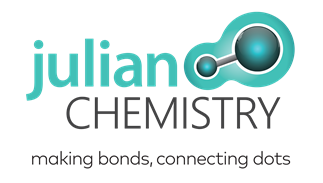A Rafflesian Journey from S to A – Trials, Tribulations and Triumphs
Five Tips on Excelling in H2 Chemistry
February 1, 2019The Dilemma of the Century: 1-1 or Group Tuition?
April 3, 2019
Hello! I’ve just graduated from RI after taking my A Levels in 2018. I’ve never been particularly strong in my Sciences all along since I was in RGS but I’ve always been in the Science stream. Haha. After struggling with rote memorization and the blessing (or not) of alternative assessments in RGS, I managed to score 3.6 for Chemistry upon graduation.
I thought i was doing alright so I immersed myself in the mountains of school activities. (Being able to cope was more difficult than I ever thought)(It was wishful thinking on my part that I could juggle academics and my school activities)
To put things in context, I did not start JC with Chemistry tuition (the diagnostic test administered at the start of Y5 saw me getting a 85%, so I thought I’d do alright). Hence, throughout Y5 I was heavily involved in sports training, Council work, volunteering and numerous other extracurricular activities.
On hindsight, I realise how little time I had left for my academic work (I only started work about 9.30pm daily, and I was always exhausted from my engagements during the day); I was never able to review my work properly, and could only complete the bare minimum for tutorials. This was my Achilles’ heel – I simply couldn’t devote time to my academic work, and it was naive of me to believe that I was coping alright alongside my many commitments. My first grade for Chemistry was an awful red snake: S, and it came as a big shock as I had never obtained a fail grade before.
Things didn’t go upwards even after I put in more effort. (It was as though I wasn’t trying)
The mad scramble for finding a tutor thus commenced. It was not because I was kiasu, but because I knew that tuition would mean more exposure to a subject I was clearly weak in. I joined Julian Chemistry sometime between CT1 and Promos, and I devoted more time towards studying the subject. I was confident of obtaining at least a pass for Promos but I was sorely disappointed yet again; I obtained another S grade.
Looking back, I know that it was because I had terribly weak foundations, and two months of ‘mugging’ was sorely insufficient to compensate for the eight months of immense content. Besides, comparing the ‘mugging’ I did then with what I did in Y6, that barely counted as mugging! It was merely me working on Chemistry when I had time, but the fact remained that I still had little time because I was still a part of my many extracurriculars. Thankfully, I quit most of them at the end of Y6!
I was extremely demoralised and was even told to consider dropping to H1 Chemistry. However I had aspirations to pursue a science-related course in university and hence set my mind on turning the tables around to be in my favour in Year 6. I relooked my study methods, stayed back after class almost every week after chemistry tuition to ask Mr Julian Tan foundational questions (my foundation was actually really poor!), and took advantage of the two-month holiday to work doubly hard for Chemistry.
Things started picking and finally came around after consistent hard work. (Things started changing and consistent hard work brought hope)
By the start of Year 6, I had already internalised the notion and came to accept the fact that H2 Chemistry had vastly different demands from secondary school Chemistry, both in terms of content mastery and the amount of time needed to be devoted to the subject. I finally saw a silver lining in CT1, where I scraped by and obtained my first pass, a D. Perhaps it was because I still had extracurriculars coupled with how we were learning new content on top of old content I still struggled to master, that CT2 saw yet another D (which was again, demoralising, but at least I did not deprove!).
The light at the end of the tunnel, literally, came at Prelims, where I achieved my first A, and then again at A Levels! With nothing on my plate left besides academics, I finally managed to see the links across topics, and had amassed sufficient practice to remember exam-friendly phrases and common pitfalls in questions.
The journey to overcome H2 Chemistry and the many setbacks was terribly difficult and while I never felt like giving up, I always thought obtaining an A would be impossible. But look, if I did it, so can you! Looking back, this process instilled so much discipline in me, and what this journey taught me is easily transferable to not only to other science subjects, but also to many aspects of life, because I truly learnt the meaning of: whatever the mind can conceive and believe, the mind can achieve.
I also would like to take this chance to thank Mr Julian Tan for not giving up on me. Mr Tan’s investment in every student, especially the weaker ones make them feel motivated to press on and I really appreciate that. He truly understands how multitasking students with high aspirations think and function and would know when and how to point ambitious students to the right direction.
With this story told, here are some lessons I’d love to share:
1. Master your foundations!
Chemistry, and the other sciences build upon your basics and a weak foundation will only set you up for failure. Plug that gap by relearning your basics on top of mastering new content, and if you’re like me, revisit the topics you’re weak at over and over again till you’re confident of being able to solve any question from that topic.
2. The more you do, the better you get.
Tuition was one of the ways I sought help from and got additional practices, but it’s equally important to do extra practices from school (past prelim questions for example), and go through them with your school tutor.
3. Consistency is key.
For me, I could only properly do this after completing the whole syllabus, but it’ll be good to space out your revision for a certain topic because it’s awfully easy to forget common pitfalls and the accurate phrases to use.
4. Don’t give up!
It’s often repeated but when your grades don’t reflect the effort you put in, you’ll really feel like your efforts were for naught and when that happens, just press on and keep working on it.
Learning and mastery occurs in phases. At first, you don’t know what you know, then you don’t know what you don’t know, then you know what you know, and finally you know what you don’t know. I must concur that I’m a very disciplined person, and I’m more than willing to put in hard work, which may have made this approach feasible, but really, for sciences the grades you obtain are reflective of the efforts you put in. I did have to let go of several interests and commitments to free up time for my academics, but time is finite and activities are infinite; you have to prioritise, discern what’s important and what’s best for yourself.
Finally, your grades are important, but it’s more important to take care of your physical and mental health. Take care of yourself and your friends, and always be thankful that you have the opportunity to even pursue education at this stage! All the very best 🙂
